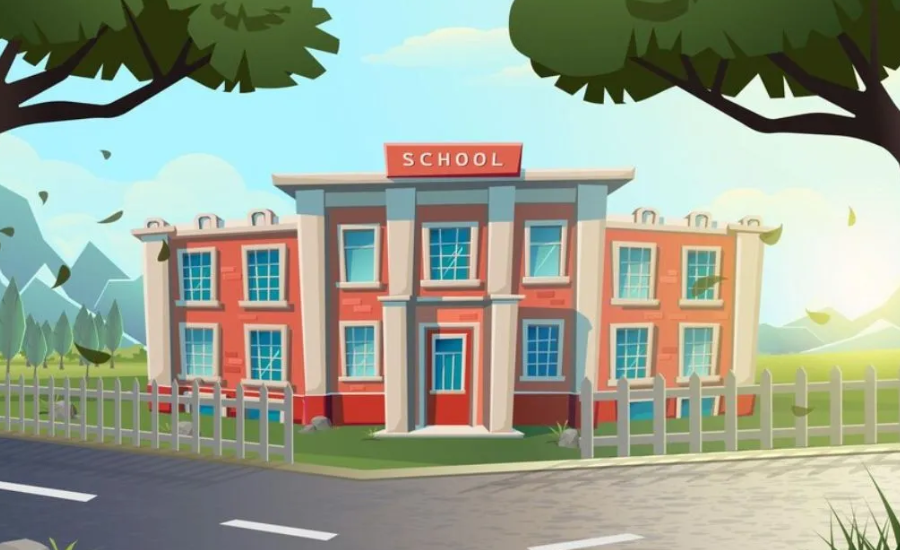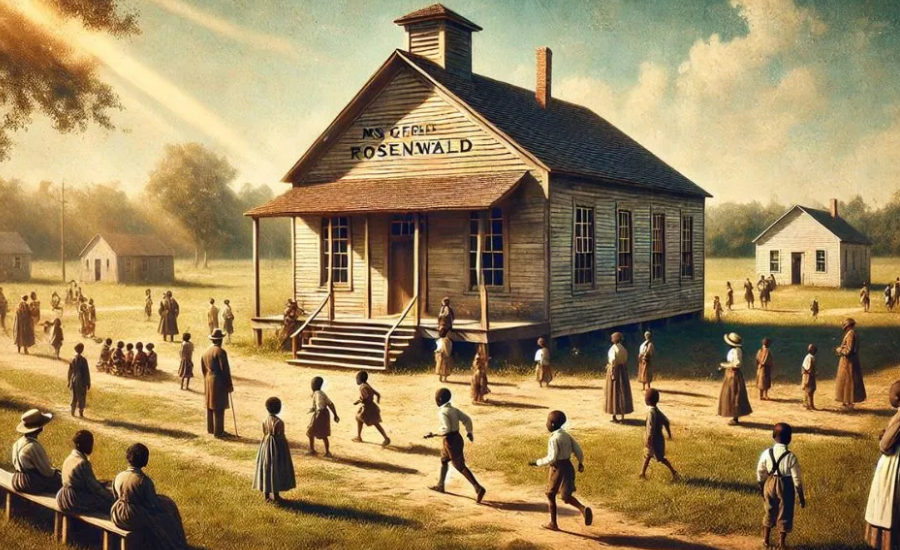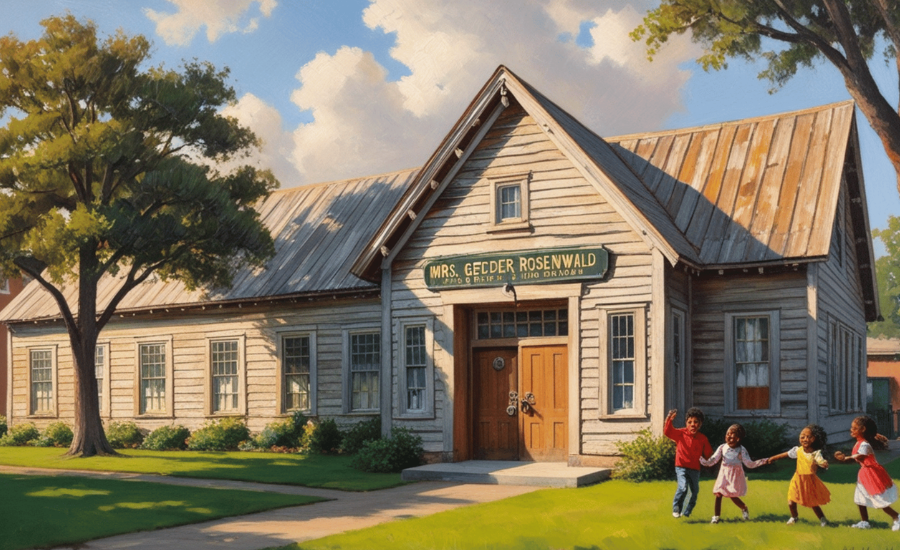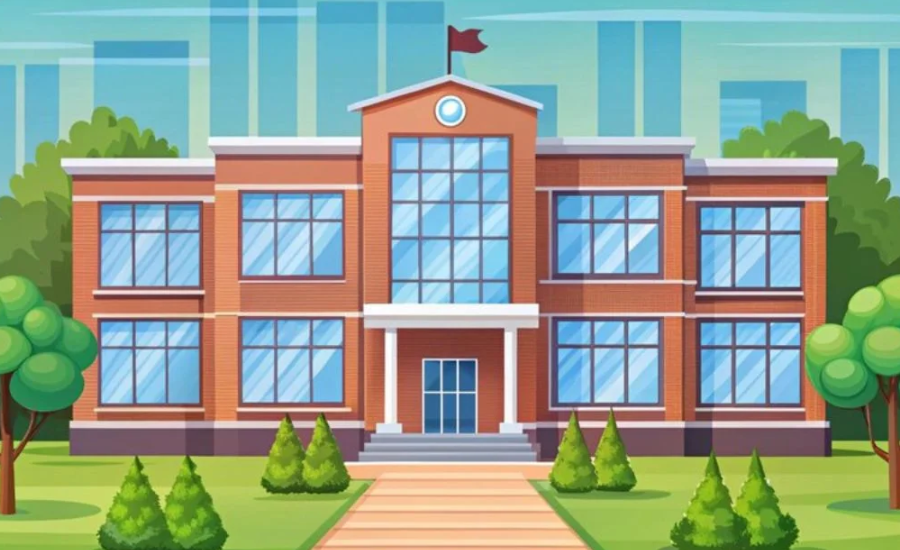Rosenwald Schools represent a significant chapter in American history, highlighting a period when communities united to forge educational opportunities in the face of daunting challenges. Established primarily in the early 20th century, these schools were a response to the widespread lack of educational resources for African American children in the segregated South. The Mrs. Geeder Rosenwald School serves as a poignant example of this grassroots movement, showcasing the commitment and determination of local communities to provide quality education. This post aims to delve into the history and significance of the Mrs. Geeder Rosenwald School, shedding light on its role within the broader context of the Rosenwald Schools initiative.
The legacy of the Mrs. Geeder Rosenwald School extends beyond its immediate impact on the students who attended. It symbolizes the collective efforts of African American communities, philanthropic support from individuals like Julius Rosenwald, and the enduring quest for educational equity. As we explore the history and significance of this particular school, we will also reflect on the broader impact of Rosenwald Schools across the United States. These institutions not only provided essential educational resources but also fostered a sense of pride and empowerment within the communities they served, leaving a lasting mark on the landscape of American education.
What Were The Rosenwald Schools?

The Significance of Rosenwald Schools
Before we explore the specifics of Mrs. Geeder’s School, it’s essential to understand the monumental impact of the Rosenwald Schools movement. These institutions were a groundbreaking collaboration between Booker T. Washington, a prominent African American educator and advocate for vocational training, and Julius Rosenwald, the president of Sears, Roebuck, and Company. Together, they aimed to combat the stark educational disparities faced by African American children in the segregated South during the early 20th century. This partnership sought to create a path toward educational equity, reflecting a deep commitment to community empowerment and social justice.
A Legacy of Hope and Resilience
From 1912 to 1932, with financial contributions from Rosenwald complemented by local community funds, over 5,000 schools, vocational workshops, and teachers’ homes were constructed. These schools were far more than mere physical structures; they became beacons of hope, resilience, and a collective commitment to progress. By offering access to quality education, Rosenwald Schools significantly improved literacy rates among African Americans and empowered generations to seek better opportunities. Among these transformative institutions is the Mrs. Geeder Rosenwald School, which stands as a powerful symbol of the enduring influence of education and the community’s relentless pursuit of progress.
The Story Behind Mrs. Geeder Rosenwald School

So, who exactly was Mrs. Geeder, and what inspired the naming of this significant educational institution? Mrs. Geeder emerged as a prominent local figure whose unwavering dedication to education and community development played a crucial role in advocating for the establishment of the school. Her relentless efforts to promote educational access for all children in her community paved the way for the founding of the Mrs. Geeder Rosenwald School in the early 1920s. Her vision extended beyond mere academic instruction; she sought to create an environment that fostered personal growth, cultural exchange, and collective advancement.
The Role and Design of Mrs. Geeder Rosenwald School
The Mrs. Geeder Rosenwald School transcended the traditional notion of an educational institution; it became a cultural hub for the local African American community. This space served as a gathering point where individuals could come together, share ideas, and work collaboratively toward a brighter future. Constructed with the classic Rosenwald design principles in mind, the school featured large windows that allowed for ample natural light and adaptable classroom spaces that promoted a dynamic learning environment.
Notably, the architecture adhered to the “Rosenwald Plan,” which emphasized creating comfortable and conducive learning environments for students. While contemporary classrooms may be equipped with the latest technology, the thoughtful design of Rosenwald Schools like Mrs. Geeder’s was innovative for its time, showcasing a commitment to quality education that prioritized the needs of the students. Through its design and function, the Mrs. Geeder Rosenwald School stands as a testament to the lasting impact of Mrs. Geeder’s vision and the transformative power of education in the community.
Impact On The Local Community
A Beacon of Hope for Education
The Mrs. Geeder Rosenwald School represented far more than the basics of reading, writing, and arithmetic—it was a transformative institution dedicated to changing lives. This school played a crucial role in enhancing literacy rates within the community, providing children access to educational opportunities that their parents and grandparents could only dream of. In an era when educational resources for African Americans were limited and often underfunded, institutions like Mrs. Geeder’s served as lifelines for families aspiring to offer their children a brighter future. The school stood as a testament to the belief that education is a fundamental right, empowering students to break barriers and pursue their ambitions.
A Cultural and Social Hub
Beyond its academic significance, the Mrs. Geeder Rosenwald School functioned as a vital social and cultural center for the local community. It was a place where events, meetings, and performances brought people together, fostering a sense of unity and collaboration. Extracurricular activities, including music and sports, enriched students’ lives, offering them opportunities to explore their talents and interests. For many, the school became a sanctuary for forging lifelong friendships, discovering new passions, and developing a profound sense of pride in their heritage.
Former students have recounted heartfelt stories of the dedicated teachers who went above and beyond to support their learning journeys. Many educators often utilized their own resources to provide essential supplies or devoted extra hours to tutor students who needed additional help. These committed professionals left indelible marks on the lives of countless children, shaping their futures in ways that extended well beyond academics. It is evident that the impact of the Mrs. Geeder Rosenwald School reached far beyond its classroom walls, weaving a rich tapestry of educational and social growth in the community.
Decline And Preservation Efforts

The Decline of the Mrs. Geeder Rosenwald School
Like many Rosenwald Schools across the United States, the Mrs. Geeder Rosenwald School eventually faced a decline. With the advent of integration and the dismantling of racial segregation in public education, many of these historic schools were forced to close their doors. As educational landscapes changed, the significance of Rosenwald Schools began to fade, leading to neglect and deterioration. The once-thriving educational center that had provided hope and opportunity to countless students became a shadow of its former self, suffering from years of disrepair. Sadly, some of these important structures were demolished entirely, often without recognition of their cultural and historical importance.
Revival and Restoration Efforts
However, the story of the Mrs. Geeder Rosenwald School does not end in obscurity. In recent years, a resurgence of interest in preserving these significant landmarks has emerged, driven by passionate local historians, alumni, and dedicated preservation organizations. Acknowledging the rich cultural and educational heritage these schools represent, efforts have been made to secure grants and engage in community fundraising initiatives aimed at restoring and maintaining the buildings. Organizations such as the National Trust for Historic Preservation have taken up the mantle, advocating for the recognition of Rosenwald Schools as vital components of American history.
The restoration initiatives often focus on reviving the original architectural designs while making necessary updates to ensure safety and usability for contemporary needs. These revitalized institutions serve not only as reminders of their enduring legacy but also as active contributors to the community, fostering education and cultural awareness for future generations. The efforts to preserve the Mrs. Geeder Rosenwald School exemplify the importance of honoring history while making it relevant in today’s world.
The Legacy Of Rosenwald Schools Today
The Enduring Legacy of Rosenwald Schools
Although the era of Rosenwald Schools as primary educational institutions has passed, their legacy remains a powerful force in American history. These schools not only provided education but also laid the groundwork for significant educational reforms. Today, numerous programs and organizations focused on educational equity draw inspiration from the Rosenwald model, demonstrating that the spirit of these schools lives on in the ongoing fight for accessible education for all children.
Cultural Recognition and Commemoration
The impact of Rosenwald Schools has transcended the classroom, finding a place in popular culture through documentaries, exhibitions, and various media representations. These narratives emphasize the importance of resilience and the fundamental right to quality education, regardless of a child’s background. The Mrs. Geeder Rosenwald School, in particular, serves as a poignant symbol of the extraordinary outcomes that can result when communities unite for a shared goal.
In addition to these cultural acknowledgments, commemorations and historical markers now grace the landscapes where these schools once thrived. Efforts to preserve Rosenwald Schools have not only prevented their physical decay but have also ignited meaningful discussions about the history and evolution of education in the United States. Through these initiatives, the stories of these schools continue to inspire new generations, reinforcing the belief that education is a vital cornerstone for community development and social progress. The legacy of the Rosenwald Schools serves as a reminder that the pursuit of equity and quality education is an ongoing journey, one that requires dedication and collaboration from all members of society.
Why Mrs. Geeder Rosenwald School Matters Today
The Lasting Legacy of Mrs. Geeder Rosenwald School
Although the Mrs. Geeder Rosenwald School has long since closed its doors to students, its legacy continues to resonate powerfully in today’s society. As we navigate pressing conversations surrounding educational equity and the preservation of historical landmarks, the story of Mrs. Geeder’s school serves as a poignant reminder of the impact that community-driven initiatives can have. It illustrates how collective efforts can foster significant change, even when faced with systemic challenges that seem insurmountable.
Education as a Catalyst for Social Change
The history of Rosenwald Schools, including Mrs. Geeder’s, underscores the critical role that access to quality education plays in promoting social progress. These institutions were not merely places of learning; they were beacons of hope and resilience that empowered generations of African Americans. As the dialogue surrounding educational disparities and the allocation of resources remains at the forefront of public discourse, the Mrs. Geeder Rosenwald School stands as a historical touchstone. It exemplifies the transformative power of community collaboration in advocating for equitable education and shaping a brighter future for all.
Each effort, no matter how small, contributes to a larger movement aimed at dismantling barriers and creating opportunities for all students. In this way, the legacy of Mrs. Geeder Rosenwald School continues to inspire current and future generations to work together in pursuit of meaningful change, reinforcing the belief that education is a vital foundation for a just and equitable society.
FAQs About Mrs. Geeder Rosenwald School
Q: What are Rosenwald Schools?
A: Rosenwald Schools were educational institutions established from 1912 to 1932 to provide quality education to African American children in the segregated South, funded through a collaboration between Booker T. Washington and Julius Rosenwald.
Q: Who was Mrs. Geeder?
A: Mrs. Geeder was a local education advocate who played a crucial role in founding the Rosenwald School in her community during the early 1920s, emphasizing the importance of access to education.
Q: What impact did the Mrs. Geeder Rosenwald School have on the community?
A: The school significantly improved literacy rates and provided vital educational opportunities, while also serving as a cultural hub that hosted events and fostered a sense of community.
Q: What challenges did the Mrs. Geeder Rosenwald School encounter?
A: The school faced decline after the end of segregation and integration of public schools, leading to disrepair and demolition of many similar schools.
Q: How are preservation efforts being made for the Mrs. Geeder Rosenwald School?
A: Local historians, alumni, and preservation organizations are working to restore the school, focusing on returning it to its original design while modernizing it for safety and usability. Some have been repurposed as museums or community centers.
Conclusion
The Mrs. Geeder Rosenwald School is a powerful testament to the resilience and determination of communities striving for educational equity. Its history highlights the transformative impact of education and the vital role of community advocacy in shaping brighter futures. As we commemorate and preserve these schools, we honor the voices of those who fought for better opportunities, ensuring their stories continue to inspire future generations. This institution serves as a reminder of the ongoing journey toward justice and equality in education for all.
For more news and alerts, make sure to check back with us often: Tribune Tribune!




